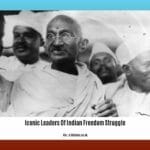From Oppression to Outlaw: The Early Years of Phoolan Devi
Phoolan Devi’s life was a complex tapestry woven from threads of poverty, oppression, rebellion, and ultimately, a fight for social justice. Born on August 10, 1963, in the village of Gorha Ka Purwa, Uttar Pradesh, India, her early years were shaped by the harsh realities of belonging to the Mallah caste, a community of boatmen and fishermen often relegated to the fringes of society.
Growing up amidst abject poverty and entangled in land disputes, a common source of conflict in rural India, Phoolan’s childhood was far from idyllic. At the tender age of eleven, she was forced into marriage with a much older man, an experience marred by abuse and trauma that would irrevocably alter the course of her life. This early exposure to violence and injustice sowed the seeds of defiance in her spirit.
Descent into Banditry: Revenge, Retribution, and the Behmai Massacre
At sixteen, Phoolan’s life took a brutal turn when she was kidnapped by a gang of bandits led by Babu Gujjar. Subjected to repeated rape and humiliation, she endured unimaginable horrors at their hands. This experience, rather than breaking her, ignited a fierce determination to seek retribution. Eventually escaping or being released (accounts vary), she joined another gang, quickly rising through the ranks and becoming a symbol of both fear and fascination.
The event that would cement her notoriety and earn her the moniker “Bandit Queen” was the Behmai massacre on February 14, 1981. Leading her gang to the village of Behmai, she enacted a brutal revenge upon a group of upper-caste men whom she held responsible for her past suffering. The massacre, which left twenty men dead, sent shockwaves through India, sparking debates about caste-based violence, gender inequality, and the very nature of justice.
A Controversial Transformation: From Outlaw to Politician
In 1983, facing mounting pressure, Phoolan Devi negotiated her surrender to the Indian government under specific conditions, including the assurance that she would not be sentenced to death. She spent eleven years in prison, where a remarkable transformation took place. It was during this period of confinement that she learned to read and write Hindi, fueling her political awareness and igniting a desire for change that extended beyond personal vendettas.
Upon her release, Phoolan Devi stunned the nation by entering politics. In 1996, she won a seat in the Indian Parliament as a member of the Samajwadi Party, a party championing the cause of lower castes. This unlikely transition from “Bandit Queen” to elected representative provided her with a platform to amplify the voices of the marginalized and challenge the deeply entrenched caste system that had oppressed her people for generations.
A Life Cut Short: Assassination and an Enduring Legacy
Tragically, Phoolan Devi’s foray into politics would be cut short. On July 25, 2001, she was assassinated outside her home in New Delhi at the age of 37. While her assassination was widely attributed to an act of revenge for the Behmai massacre, whispers of a broader conspiracy involving powerful figures threatened by her growing influence have persisted.
Even in death, Phoolan Devi remained an enigma. Her life, a complex tapestry woven from threads of victimhood, violence, and a relentless pursuit of justice, continues to captivate and provoke. Was she a ruthless criminal or a product of a brutal system? A symbol of empowerment or a cautionary tale of revenge? The answer likely lies somewhere in between.
Phoolan Devi’s legacy is a stark reminder of the deep-seated inequalities that plague India. Her story compels us to confront uncomfortable truths about caste, gender, and the cycle of violence that continues to grip marginalized communities. Though her life was tragically cut short, her impact on India’s social and political landscape remains undeniable. She became a folk hero to some, a controversial figure to others, but ultimately, her story serves as a powerful testament to the resilience of the human spirit in the face of overwhelming adversity.
Unanswered Questions and Ongoing Debates
While Phoolan Devi’s story has been told and retold, there remain unanswered questions and areas ripe for further exploration.
One such area is the role of caste in shaping her destiny. The “Bandit Queen” label, while captivating, often overshadows the systemic issues of caste-based violence and poverty that she came to represent. Delving deeper into the nuances of the caste system and its impact on her life can provide a more nuanced understanding of her motivations and actions.
Equally important is an examination of the gender dynamics that influenced her journey. How did being both a woman and a member of a lower caste make her particularly vulnerable? How did she navigate a patriarchal society – first within the criminal underworld and later within the male-dominated realm of politics?
The media’s role in crafting her image, both during her lifetime and after her death, also warrants closer scrutiny. Exploring the romanticization of her violence and how it feeds into existing stereotypes can offer a more balanced perspective.
Finally, it is crucial to assess the tangible impact of her political career. Did her advocacy bring about meaningful change for the communities she sought to represent? How is her legacy viewed in contemporary India?
By delving into these complexities, we can move beyond simplistic narratives and gain a more profound understanding of the woman who was both a product and a challenger of her times: Phoolan Devi, the Bandit Queen turned People’s Champion.
For those interested in exploring other captivating figures, you might find the story of David Schwimmer intriguing, as he transitioned from comedic roles to a poignant portrayal in the war drama “Band of Brothers.” Or, uncover the hidden truths behind the David Camm investigation, a controversial murder case in Indiana history.
- Unlock Water’s Symbolism: A Cross-Cultural Exploration - April 20, 2025
- Identify Black and White Snakes: Venomous or Harmless? - April 20, 2025
- Unlocking Potential: Origins High School’s NYC Story - April 20, 2025














